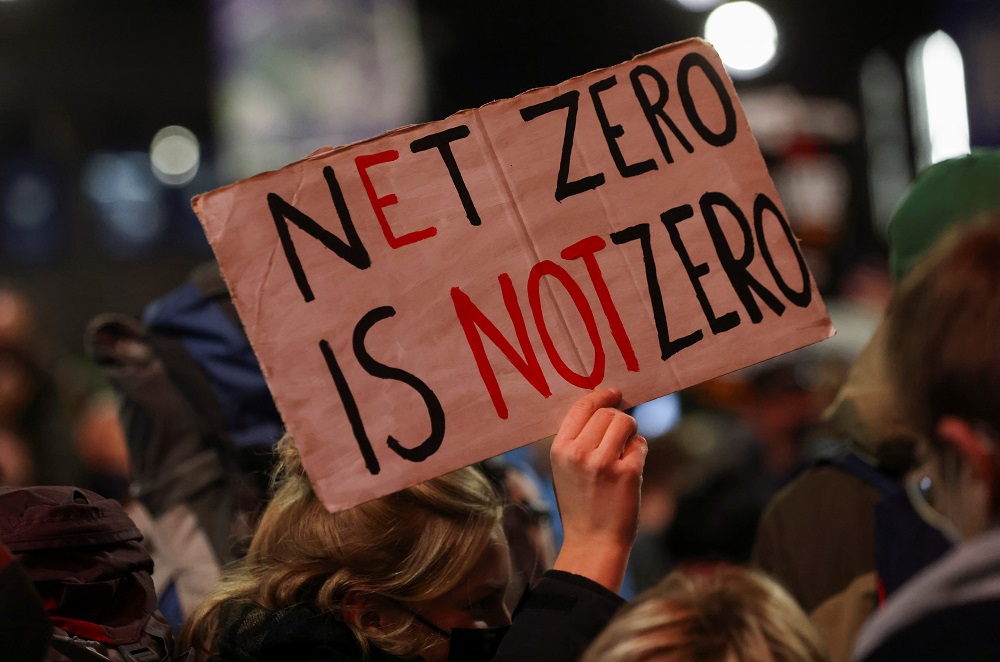The COP26 summit started with much fan fare and ended with developing countries being bashed for not making enough commitments to the global climate agenda. South Africa, the region’s most developed country, received the most heat, alongside Brazil, India and China, for pushing for the words “coal to be phased out” be changed to “phased down.”
African countries can be forgiven for not taking the transition to a green economy with much vigor. Unlike the West, they do not have the luxury to stop depending on fossil fuels to power their national grids. The demand for electricity in Africa is expected to triple by 2030 with the rapid economic and population growth, particularly in the continent’s burgeoning cities. This will in turn have profound implications for the energy sector, both regionally and globally.
A United Nations study published in July found out that at least half of the people living in the continent, nearly 600 million, do not have access to electricity and for those who have access, it is quite unreliable thereby negatively influencing engagement in any economic activity.
The recent flurry of activity on the climate agenda has set the stage for a new wave of dynamism among African policy makers, business communities and thought leaders, with falling costs of key renewable technologies opening up new avenues for innovation and growth. William Brent, Chief Marketing Officer at Husk Power System says, “Our whole mission, from the very beginning has been to try to tackle these two issues by replacing diesel genset by augmenting the infrastructure that is there that the National Grid.
“Some utilities have been unsuccessful in providing, and to do it for as many people as possible.”
However, chief among the many challenges Africa is facing is providing universal access to reliable, modern, affordable and sustainable clean energy. How to do this is a crucial component of Africa’s Agenda 2063 strategic framework for the continent’s future and that of global Sustainable Development Goals.
Realizing the potential of the continent’s natural gas and mineral resources presents another key challenge since Africa has to heavily rely on the developed countries for funding to extract these.
The reality is, for now Africa cannot indulge in elusive net-zero carbon targets. The continent has abundant fossil fuel resources which can power its businesses, homesteads and infrastructure. The 2015 Paris Agreement also made clear the importance of developed countries financing Africa to transition to a green economy. However, despite all the talk, the money hasn’t flowed.
“According to the World Bank we need to get to $200 billion, and we’ve only invested 5 billion. The private sector, different governments, financial institutions have made huge investments if you just look at the mini grid space, so many grids, mostly solar, plus battery power generation and distribution that serve communities,” says Brent.
Brent further adds that countries like Nigeria that have put forward a vision of a public private partnership with the energy sector have taken out a $350 million loan from the World Bank to launch electrification projects and a significant amount of that money will be going to rural electrification.
“Since Africa has all these resources naturally the question is, how do we transform this by attracting money to be able to develop different products to take care of energy needs that we have across the continent?” – Maggie Mutesi, Managing Editor of Mansa Media.
How to harness this untapped energy and transform it to develop the continent’s rising need for energy still remains a hard nut to crack, with many thought leaders and decision makers only involving themselves in talk shops and not having meaningful strategies to positively impact the continent.
“I would say it’s time for us to move from all of these talk shops and proceed to making proper action on the ground, which is why I salute to our systems are doing, they’re getting off the talk shop side of things, and really getting down to business within the continent,” said Dum Jere, Founder and Managing Partner of Talanta.
“With all these ambitious targets that they’ve put in for 2030, the mini grids, the million megawatts, million plus connections that are hoped, and all of those things.”

